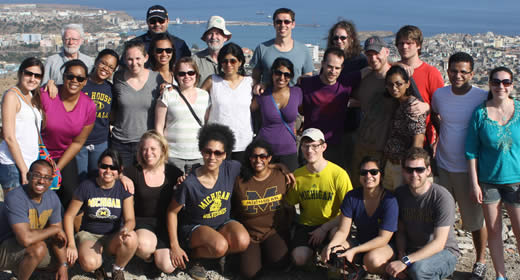
On January 29th, the Michigan Daily ran “Experiential learning class plans spring trip to Brazil” by Will Greenberg, describing the Ford School’s International Economic Development Program (IEDP). The course “consists of class work in Ann Arbor followed by a spring break trip to a foreign country selected by the students.”
This year, 22 public policy, law, and natural resources and environment students will be journeying to Brazil. With an entirely student-made curriculum and trip itinerary, the group will be learning about Brazil’s economic development, social welfare, environmental issues, urban planning, and security via direct contact with the country’s stakeholders. The students are also responsible for posts to a public blog and presentations regarding their research on Brazil.
“The class hosted a Brazilian cultural night Thursday – “Uma Noite Brasiliera” – both as a fundraiser and educational event for the campus,” writes Greenberg. While the IEDP program has been running since 2000, this year’s trip is made unique by advising professor Melvyn Levitsky. Throughout his lengthy diplomatic career, Levitsky served as the U.S. ambassador to Brazil from 1994 to 1998 and as a member of the United Nations Economic and Social Council.
Several students in the program disclose that Brazil and the United States share similar racial and social issues, however most Americans are unaware of these parallels. Lauren Burdette (a public policy graduate student) warns, “If you don’t actually learn the history of a country and learn what’s actually happening on the ground, you run the danger of making a lot of assumptions of what life is actually like there and assumptions can make really bad policy.”
